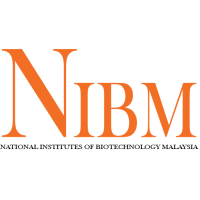Ulam refers to a group of traditional Malaysian plants commonly consumed as a part of a meal, either in the raw form or after a short blanching process. Many types of ulam are thought to possess blood glucose-lowering properties, but relatively little is known on the effectiveness of ulam in modulating blood glucose levels in humans. This review aims to systematically evaluate the effectiveness of ulam in modulating blood glucose levels in humans. A literature review was conducted using multiple databases with no time restriction. Eleven studies were retrieved based on a priori inclusion and exclusion criteria. In these 11 studies, only Momordica charantia, locally known as "peria katak", was extensively studied, followed by Centella asiatica, locally known as "daun pegaga", and Alternanthera sessilis, locally known as "kermak putih". Of the 11 studies, 9 evaluated the effectiveness of M. charantia on blood glucose parameters, and 7 of which showed significant improvement in at least one parameter of blood glucose concentration. The remaining 2 studies reported nonsignificant improvements in blood glucose parameters, despite having high-quality study design according to Jadad scale. None of the studies related to C. asiatica and A. sessilis showed significant improvement in blood glucose-related parameters. Current clinical evidence does not support the popular claim that ulam has glucose-lowering effects, not even for M. charantia. Hence, further clinical investigation is needed to verify the glucose modulation effect of M. charantia, C. asiatica, and A. sessilis.
Data dan Sumber
| Field | Value |
|---|---|
| Bidang Penyelidikan | Bioteknologi |
| Objektif Sosioekonomi | Advanced Experimental and Applied Science |
| Penerbit | |
| Lesen | License Not Specified |
| Tahap Akses Awam | Public |
| Modified | 2020-01-08 |
| Release Date | 2019-12-05 |
| Identifier | c9c30e4e-5f2c-4901-b60f-c180d9ab704e |

